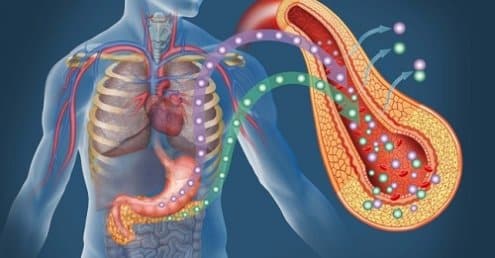Insulin and glucagon work to help keep your blood glucose level under control. Both of these hormones are produced in the pancreas. Insulin, which helps to normalize a high level of blood sugar, is produced by the beta cells. On the other hand, glucagon, which helps to control a low level of blood sugar, is produced by the alpha cells.
Insulin and glucagon
Insulin and glucagon are both natural hormones that help to regulate blood glucose levels in the body. The body will stimulate the pancreas to release insulin and glucagon which helps to normalize blood sugar levels. Glucagon and insulin work in a manner that is commonly referred to as a negative feedback loop, which helps to balance your blood glucose level. The whole process ensures that your body gets enough energy.
How insulin works
Our bodies require glucose, which is a source of energy so that it can function normally. Usually, when you eat, glucose is absorbed into the bloodstream and leads to a high blood glucose level. A rise in blood glucose will signal the pancreas to release insulin. Insulin works by attaching itself to insulin receptors outside the body cells. This creates a gateway for glucose to enter the body cells.
How glucagon works
Glucagon works alongside insulin to counterbalance the effects of the latter. When you don’t eat for around 6 hours, your blood glucose starts to drop. This will signal your pancreas to release glucagon. Glucagon works by triggering glucose that has been stored as glycogen to be released.
Effects of insulin and glucagon on blood sugar levels
Normal levels of blood sugar are between 70mg/dL and 110mg/dL. When your blood sugar level falls below 70mg/ dL, your body will signal the pancreas to release glucagon. When blood glucose levels rises above 110mg/dL insulin will be released. If insulin and glucagon are not functioning properly, this can lead to health conditions such as diabetes.



